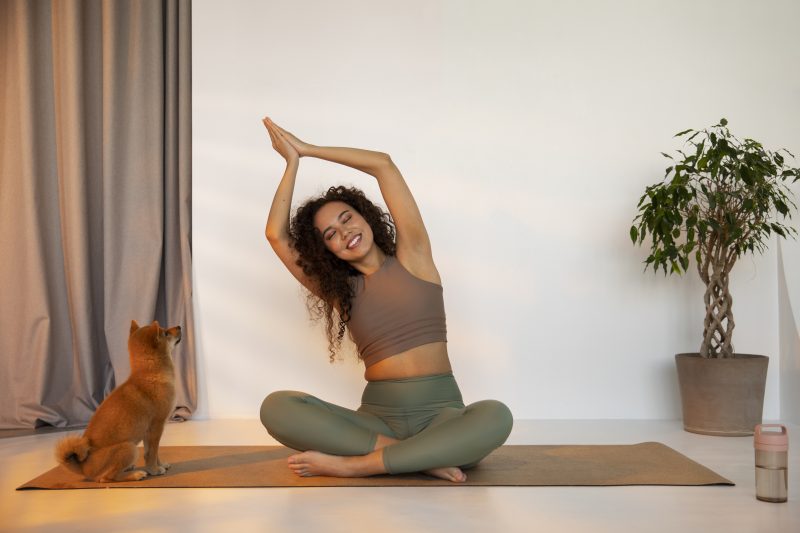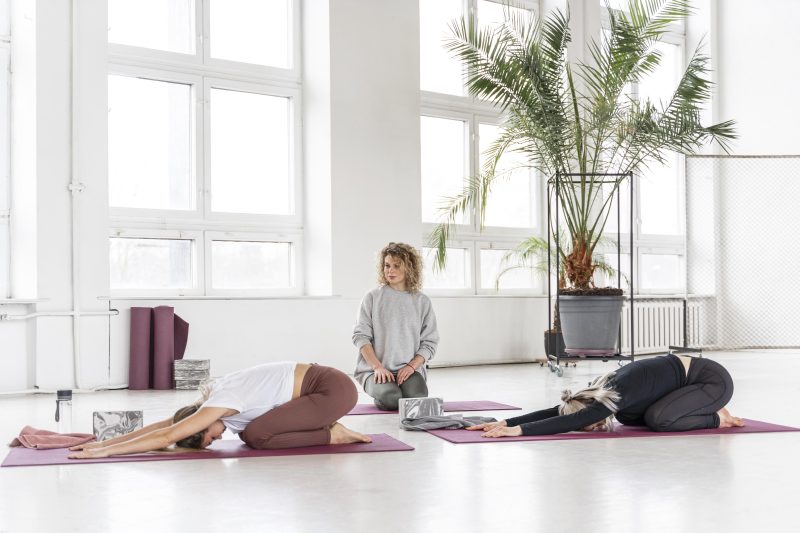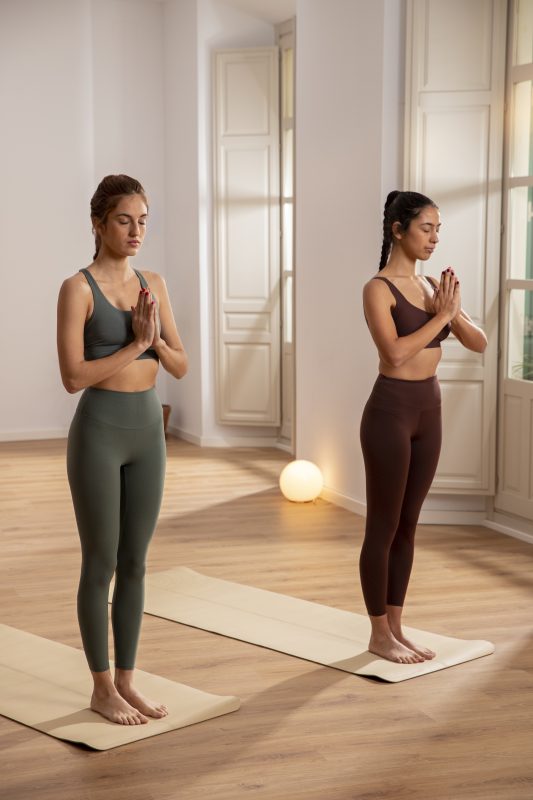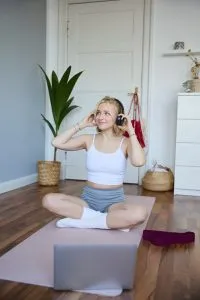Have you been considering yoga classes or online sessions, wondering if it’s the right fit for you?
With the abundance of wellness trends and images of advanced yoga poses online, it’s understandable to feel hesitant.
However, yoga is a practice accessible to everyone, regardless of flexibility or experience.

Backed by Experience & Science
With over 23 years as a Sports Medicine Physician and yoga instructor, I’ve witnessed yoga’s transformative effects on individuals’ physical and mental well-being. Research supports these observations:
- Johns Hopkins Medicine highlights yoga’s role in enhancing strength, balance, and flexibility, and alleviating chronic pain conditions like arthritis and back pain.
- Harvard Health associates yoga with reduced blood pressure, stress, and improved heart health.
- A study in Psychosomatic Medicine indicates that regular yoga practice can lower cortisol levels (the stress hormone) and improve mood.
The Mental Health Benefits of Yoga
Yoga offers significant mental health advantages:
- Healthline reports that yoga can help reduce symptoms of anxiety and depression.
- The National Institutes of Health (NIH) suggests yoga may improve sleep quality, boost immunity, and enhance emotional resilience.
These benefits are evident in many individuals who incorporate yoga into their routines.

Practical Insights from the Mat
Key points to consider:
- Yoga is about connection, not just flexibility. It fosters a connection to your breath, body, and present moment.
- Minimal equipment is required. A simple mat and the willingness to engage are sufficient.
- Flexibility in practice. Every pose is optional; the primary goal is to feel comfortable and connected in your body.
My personal journey with yoga began over two decades ago, and it has been integral to my professional and personal growth.
Yoga as a Path to Lifelong Wellness
Beyond physical benefits, yoga influences daily life positively.
Practitioners often experience better sleep, improved stress management, and increased mindfulness.
Scientific findings support these outcomes:
- Regular yoga sessions can enhance sleep quality.
- The mindfulness cultivated through yoga aids in better decision-making and emotional regulation.

Starting Your Yoga Journey: A Simple Guide
- Begin with short sessions. Starting with 10-minute routines can be effective.
- Explore various styles. Depending on your preferences, you might enjoy the gentle approach of Yin yoga or the dynamic flow of Vinyasa.
- Utilize props for support. Items like cushions or books can enhance comfort and support during practice.
- Focus on internal experience. Pay attention to how you feel during and after practice, rather than external appearances.
Final Thoughts – Embrace the Journey
Embarking on a yoga practice can offer tools for stress relief, physical strength, and overall well-being.
The essence of yoga is in the practice it
self, not in achieving perfection.
If you have questions or need guidance on starting your yoga journey, feel free to reach out.
If you are looking for a yoga mat to get you started our team have reviewed the top mats.
Let’s make your experience informed, supportive, and enriching.

Frequently Asked Questions About Starting Yoga
1. Do I need to be flexible to start yoga?
Absolutely not! Flexibility is not a prerequisite for yoga; in fact, it’s one of the benefits you’ll gain over time. Many people begin yoga to improve their flexibility, and with consistent practice, you’ll notice gradual improvements in your range of motion and overall mobility.
2. What are the health benefits of practicing yoga?
Yoga offers a multitude of health benefits, including improved flexibility, increased strength, better balance, and enhanced mental well-being. Regular practice can help reduce stress, alleviate anxiety, and promote a sense of calm and relaxation. Additionally, yoga has been associated with improved cardiovascular health and better sleep quality.
3. How often should I practice yoga as a beginner?
As a beginner, it’s beneficial to start with 2-3 sessions per week, allowing your body to adapt to the new movements and build a consistent routine. Even short sessions of 15-30 minutes can be effective. The key is consistency and listening to your body’s needs.
4. Can I practice yoga at home, or should I attend classes?
Both options are viable and can complement each other. Practicing at home offers convenience and flexibility, allowing you to progress at your own pace. Attending classes, especially in the beginning, provides guidance from experienced instructors who can ensure proper alignment and technique. Many people find a combination of both, to be the most beneficial.
5. What equipment do I need to start yoga?
Starting yoga requires minimal equipment. A comfortable yoga mat is essential to provide cushioning and supportOptional props like yoga blocks, straps, and bolsters can assist in achieving proper alignment and making poses more accessible. Wear comfortable, breathable clothing that allows for a full range of motion.





